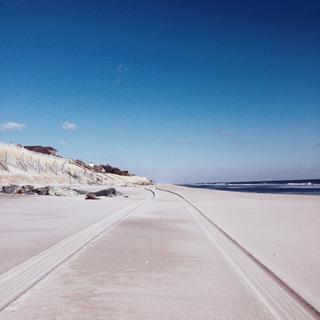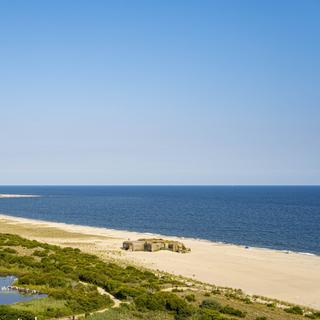New Haven, CT weather and climate in 2025
Day
28 °C
Night
18 °C
Sea
20 °C
Precipitation
97 mm
in month
Rainy days
10 days
in month
Daylight
15 hours
average
Sunshine
9 hours
average
Humidity
72 %
Weather charts for New Haven, CT
Find more destinations like this
Closest destinations for New Haven, CT
Closest cities for New Haven, CT
Weather overview for New Haven, CT
Weather overview
New Haven, CT, a city marked by the confluence of coastal charm and seasonal versatility, experiences a wide range of weather phenomena throughout the year. Winter brings cool to cold temperatures, while the spring sees a noticeable upswing in warmth. Summers are typically warm to hot, ramping up beach activities, as sea temperatures become pleasant for swimming. Fall ushers in crisp air and a colorful tapestry of foliage, popular among photographers and nature enthusiasts alike. Precipitation is moderately distributed across the year, though winter snow can occasionally blanket the city in a serene white.
January weather
With the chilly embrace of winter, January brings average daytime temperatures of 3 °C (38 °F). Nighttime can get quite cold, averaging -6 °C (22 °F). The city often receives a decent amount of precipitation, averaging 103 mm (4.05 in) this month, and the brave gusts of wind at 5 m/s remind residents to bundle up.
February weather
As February persists, the icy hold of winter remains with daytime highs creeping up to 5 °C (40 °F) and nights at an average of -5 °C (24 °F). The winds continue to sweep through the city at 5 m/s, and the skies accumulate 85 mm (3.35 in) of precipitation over an average of 9 days.
March weather
March heralds the onset of spring, albeit tentatively, as temperatures rise to daytime highs around 9 °C (48 °F), contrasted by nightly lows of -1 °C (30 °F). The rain prepares the ground for spring bloom, with an average of 105 mm (4.11 in) of rainfall and 11 days of wet days expected.
April weather
The true warmth of spring graces New Haven in April, with day temperatures reaching an average high of 15 °C (59 °F), and night temperatures averaging a more tolerable 4 °C (40 °F). Showers frequent the month, creating verdant scenes, and the average precipitation touches 109 mm (4.30 in), spread over 11 days.
May weather
May marks the transition into early summer as the mercury climbs to 21 °C (69 °F) in the daytime and drops to 9 °C (49 °F) at night. Precipitation slightly wanes to an average of 97 mm (3.82 in), with winds slowing to 4 m/s, symbolizing a change in seasons.
June weather
June's sunshine ushers in the start of summer, with day temperatures peaking around 26 °C (78 °F), while nights become comfortably warm at 15 °C (59 °F). Humidity begins to be more pronounced, averaging at 72 %, making some days feel muggier. An average of 102 mm (4.00 in) of rain falls over 11 days, yet the days are long and ripe for summer activities.
July weather
In the heat of July, New Haven's day temperatures can soar to 28 °C (83 °F), while nights stay warm at an average of 18 °C (64 °F). The city basks in the height of summer, with the sea temperature reaching 20 °C (69 °F), perfect for beach-goers. Rainfall does not halt for summer, averaging 97 mm (3.80 in), yet less frequent winds at 4 m/s provide little relief from the heat.
August weather
August slightly dials back the heat, with an average daytime high of 28 °C (82 °F) and nighttime temperatures at 18 °C (64 °F). Oceanside life still thrives as sea waters remain inviting at 22 °C (71 °F). The air is often heavy with moisture, reflected in the relative humidity of 74 %, and showers continue with an average of 96 mm (3.77 in) over 10 days.
September weather
September's climate begins to shift as autumn approaches, featuring day temperatures around 24 °C (75 °F). The evenings become cooler, averaging 13 °C (56 °F). Sea temperatures start to cool as well, registering 20 °C (69 °F). Rainfall remains consistent, with an average of 94 mm (3.68 in), but the onset of fall starts to change the outdoor scenery.
October weather
Come October, New Haven sees a more pronounced autumnal feel with daytime temperatures decreasing to 18 °C (64 °F) and nights cooling off to 7 °C (45 °F). Rain persists over an average of 8 days, contributing to the fall foliage. The wind picks up speed again, blowing at an average of 4 m/s.
November weather
As the year nears its end, November's chill sets in, with day temperatures dropping to 12 °C (54 °F) and nights to a brisk 3 °C (37 °F). The wind still veers through the city at 4 m/s, and precipitation values hit an average of 99 mm (3.89 in) across 10 days.
December weather
The cold creeps back as December heralds the start of winter, with daytime temperatures hovering around 6 °C (43 °F) and night averages dropping to -2 °C (28 °F). The seasonal wind maintains its brisk pace at 5 m/s, and an average of 85 mm (3.36 in) of rainfall marks the end of the calendar year.
FAQs
How often should I expect it to rain or snow in New Haven during January?
In January, New Haven can experience around 11 days of precipitation; be it rain or, quite frequently, a picturesque snowfall.
What are the chances of experiencing a snow day in New Haven in February?
Snow remains a common sight in February, contributing to the overall precipitation count for the month. The chances are quite high for some wintry scenes.
Is an umbrella a frequent necessity in New Haven during March?
Given that there are, on average, about 11 days of precipitation in March, it's wise to keep an umbrella close at hand.
Is April a particularly rainy month in New Haven?
April showers are indeed a thing in New Haven, as the city sees a substantial amount of rain, so it pays to stay weather-aware.
How does May weather affect outdoor plans in New Haven?
May's warmer temperatures and reduction in precipitation make it a wonderful time to engage in a variety of outdoor plans, from hiking to city walking tours.
How would you describe the typical June weather in New Haven?
June is typically warm and a bit humid with occasional rain, but overall, it's a pleasant start to the summer season, inviting all sorts of outdoor fun.
Is July usually the hottest month in New Haven, and how do I prepare for it?
July often reigns as the hottest month, so preparing means light, breathable clothing, staying hydrated, and never forgetting the sunscreen when outdoors.
Should I expect humid and hot days in New Haven throughout August?
Yes, expect hot and humid days in August, though temperatures are a tad cooler than July. The mugginess can be quite pronounced, urging most to find solace in air-conditioned spaces or at the beach.
Does September in New Haven feel more like summer or fall?
September is a transitional month with lingering summer warmth during the day but with a distinct crispness hinting at fall in the evenings.
Is October a rainy month in New Haven, and how should I prepare?
October is moderately rainy, so having a raincoat and waterproof boots could be quite handy as you navigate the city's autumnal beauty.
Will I need to bundle up in New Haven this November?
Bundling up is definitely recommended, given the lower average temperatures 12 °C (54 °F) during the day and 3 °C (37 °F) at night. The chill is in the air!
What kind of winter weather should I expect in New Haven during December?
Expect typical cold winter weather with a decent chance of snowfall, and make sure you have your winter wardrobe ready to confront the chilly 6 °C (43 °F) daytime temperatures.
We make the most from 40 years of historical weather data to predict the best weather conditions.
Deciding on where to go for a holiday is hard sometimes. Get inspired by the most popular destinations.
We aggregate data from combining multiple weather sources to ensure accuracy of the highest order.







